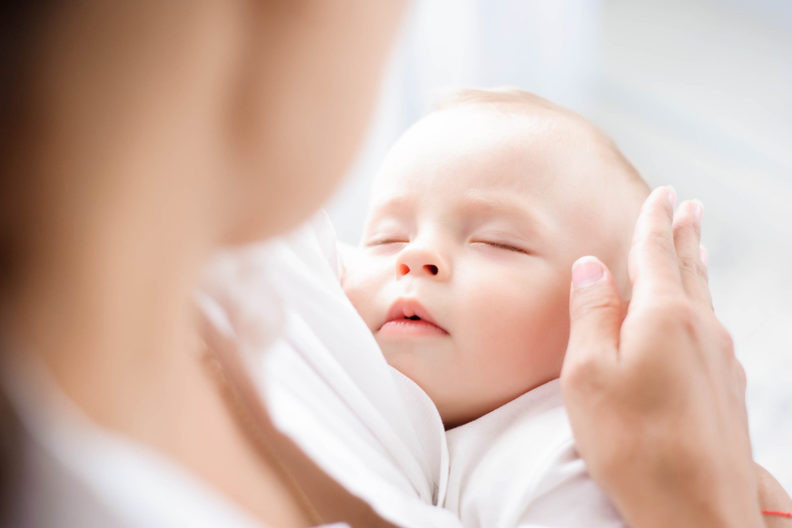WSU and UW studying effects of stress during pregnancy and COVID-19
Friday, May 29, 2020

By Judith Van Dongen
WSU Health Sciences Spokane Office of Research
SPOKANE, Wash. – Having a baby is a life-changing event that brings joy, but for many women also comes with stress and anxiety.
The restrictions and uncertainties associated with the current COVID‑19 pandemic are undoubtedly adding to those fears and worries, said Celestina Barbosa‑Leiker, an associate professor in the College of Nursing and vice chancellor for research for WSU Health Sciences Spokane. Barbosa‑Leiker is one of more than a dozen WSU researchers who recently joined forces to form the WSU COVID‑19 Infant, Maternal, and Family Health Research Collaborative.
“Research has shown that when you’re experiencing high levels of stress during pregnancy it has long‑term effects on the fetus, the baby, as the baby develops, and in generations to come,” she said. “Our goal is to identify the knowledge and resources that could help pregnant and postpartum women cope with all of the unique stressors they are facing right now so that we can secure the health of moms and babies.”
Even though their new collaborative is just getting started, the researchers—who span a variety of disciplines across multiple colleges and campuses—already have a half dozen studies lined up to address critical questions related to the impact of COVID‑19 on the health of mothers, babies, and families. The first one, which was launched last month, is a survey designed to measure mental health, stress, health behaviors, substance use, and food insecurity in pregnant women during the COVID‑19 pandemic.
“Expectant moms are up against a variety of challenges, from losing their jobs and not being able to afford food to uncertainty about whether their partner will be able to be in the delivery room with them when they go into labor,” said project lead Crystal Lederhos Smith, an assistant research professor in the Elson S. Floyd College of Medicine. “With this survey, we want to identify what is having the biggest impact, so we can work backwards to figure out how we can intervene to decrease stress and reduce negative outcomes.”
Another project that was recently funded by the National Science Foundation is a multi‑institutional research study looking at the role of infant feeding in COVID‑19.
“We are exploring how maternal COVID‑19 infection is related to overall breastmilk composition and infant health and wellbeing. Specifically, we are interested in potential protective effects of breastfeeding during this time,” said WSU lead investigator Courtney Meehan, an associate professor of anthropology and associate dean of research and graduate studies in the WSU College of Arts and Sciences. “It is essential that we get this information quickly and accurately so we can better inform the public, as well as those who create policy,” she said, pointing to the varying recommendations that are currently being put forward by agencies such as the Centers for Disease Control and Prevention, World Health Organization, and UNICEF.
The WSU team will be collaborating with researchers at the University of Idaho, University of Washington, and Tulane University to address these questions, collecting data from postpartum women in Washington, Idaho, and elsewhere in the nation who have been diagnosed with COVID‑19 within the past seven days. They are getting ready to distribute sample collection kits that participants will use to submit breast milk, stool, and blood samples and hope to have preliminary study results available sometime later this year.
Other research projects that will be conducted by the collaborative include:
- a social media survey of pregnant and postpartum women on the psychological and social support resources pregnant and postpartum women think they need during the COVID‑19 pandemic, led by Barbosa‑Leiker
- phone interviews with pregnant or parenting mothers who use cannabis or are on medication-assisted therapy about the impact of COVID‑19 on pregnancy and/or parenting, led by Barbosa‑Leiker
- a study that measures cortisol levels in hair to measure pandemic-related stress in pregnant women and its effects on stress responsiveness in babies, led by Erica Crespi, an assistant professor in the WSU School of Biological Sciences
- a study focused on the relationship between COVID‑19 related stress and the birth experience, the quality of the mother-infant relationship, and mother and infant stress and coping, led by Sara Waters, an assistant professor of human development at WSU Vancouver
“As a land‑grant university, WSU focuses much of its research enterprise on initiatives and projects that address the societal needs that impact our state,” said John Roll, associate vice president for strategic research initiatives for WSU Health Sciences and co‑lead of WSU’s academic and research response to the COVID‑19 pandemic. “The new COVID‑19 Infant and Maternal Health Research Collaborative is a prime example of how our researchers are pivoting their work to gain new knowledge that will help Washingtonians during this pandemic.”
Media contact:
- Celestina Barbosa‑Leiker, WSU Health Sciences Spokane/College of Nursing, 509‑324‑7477, celestina@wsu.edu